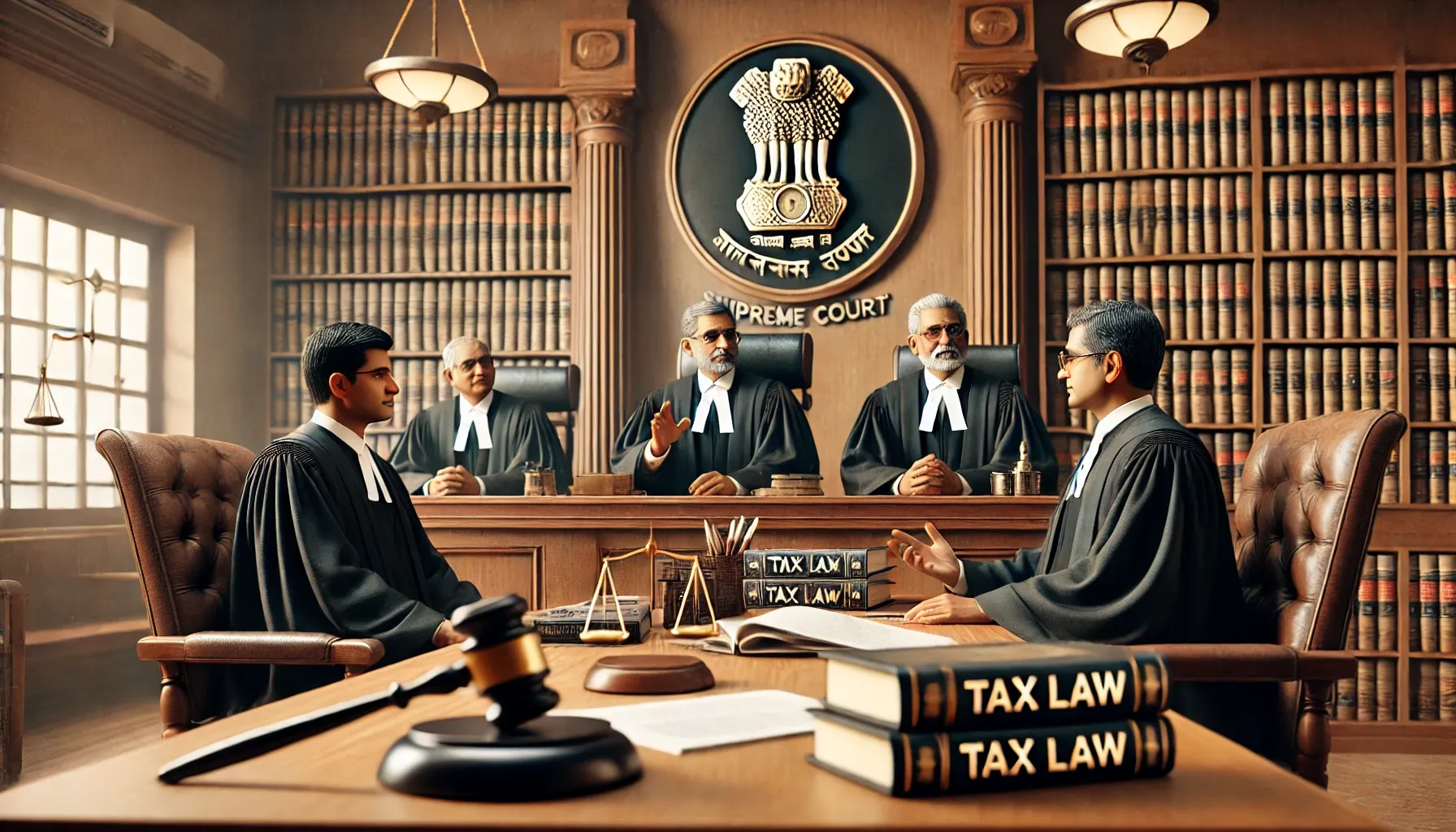The Supreme Court ruled that an offence committed before a show-cause notice qualifies as a ‘first offence’ under the 2014 Compounding Guidelines, overturning Gujarat HC's rejection of a taxpayer’s compounding plea.

In a significant ruling, the Supreme Court of India has overturned the Gujarat High Court's judgment dated March 21, 2017, which had rejected an assessee’s compounding application for the Assessment Year (AY) 2013-2014 under the Income Tax Act, 1961. The Gujarat High Court had earlier held that compounding was permissible only for a “first offence” and that since the appellant had previously compounded an offence for AY 2011-2012, he was not eligible for compounding again.
However, the Supreme Court, in its judgment delivered on January 7, 2025, held that the "first offence" under the Guidelines for Compounding of Offences, 2014 refers to an offence committed before the issuance of a show-cause notice, and since both offences (AY 2011-2012 and AY 2013-2014) were committed before any show-cause notice was issued, they qualify as “first offences.” Consequently, the rejection of the compounding application for AY 2013-2014 was set aside, and the appellant was allowed to file a fresh application.
Background of the Case
- The appellant, Vinubhai Mohanlal Dobaria, had filed a belated Income Tax Return (ITR) for AY 2011-2012 on March 4, 2013, whereas the due date was September 30, 2011.
- As a result, the Assistant Commissioner of Income Tax proposed prosecution under Section 276CC of the Income Tax Act (which penalizes failure to furnish income tax returns) on October 27, 2014.
- The assessee then sought compounding under the Guidelines for Compounding of Offences, 2008, which was granted on November 11, 2014 for both AY 2011-2012 and AY 2012-2013.
- For AY 2013-2014, the appellant again filed a delayed return on November 29, 2014, whereas the due date was October 31, 2013.
- A show-cause notice for prosecution under Section 276CC was issued on March 12, 2015, leading the appellant to seek compounding again.
- However, this time, the compounding request was rejected in 2017, citing that compounding was only available for the first offence under the 2014 Guidelines, and since the appellant had already availed compounding for AY 2011-2012, he was ineligible.
- The Gujarat High Court upheld this rejection, ruling that the compounding authority need not consider the circumstances of the delay and that such matters should be examined only during trial.
Supreme Court’s Analysis and Ruling
1. When is an Offence Under Section 276CC Committed?
The Supreme Court, relying on Prakash Nath Khanna v. CIT (2004), clarified:
“An offence under Section 276CC could be said to have been committed as soon as there is a failure on the part of the assessee in furnishing the return of income within the due time as prescribed under Section 139(1) of the Act.”
The Court further held that:
“Subsequent furnishing of the return of income by the assessee within the time limit prescribed under sub-section (4) of Section 139 or before prosecution is initiated does not have any bearing upon the fact that an offence under Section 276CC has been committed on the day immediately following the due date for furnishing return of income.”
Thus, the date of the offence for:
- AY 2011-2012 was October 1, 2011 (the day after the due date: September 30, 2011).
- AY 2013-2014 was November 1, 2013 (the day after the due date: October 31, 2013).
2. The Definition of ‘First Offence’ Under the 2014 Guidelines
The Guidelines for Compounding of Offences, 2014, which replaced the 2008 Guidelines, define a "first offence" as:
a) An offence committed prior to the date of the show-cause notice for prosecution
b) An offence committed prior to any intimation of prosecution by the department or before the actual launch of prosecution
The Supreme Court noted that:
“The show cause notice for the AY 2011-12 was issued to the appellant on 27.10.2014. However, the offence under Section 276CC of the Act could be said to have been committed on the dates immediately following the due date for furnishing the return of income for both these assessment years respectively.”
Since both offences were committed before the show-cause notice was issued, the Supreme Court ruled:
“Both the offences under Section 276CC of the Act were committed prior to the date of issue of any show-cause notice for prosecution.”
Thus, under the 2014 Guidelines, both AY 2011-2012 and AY 2013-2014 qualify as a "first offence", making the appellant eligible for compounding for AY 2013-2014.
Case Title: Vinubhai Mohanlal Dobaria Vs Chief Commissioner of Income Tax, Special Leave Petition (C) No. 20519 of 2024
Attachment:





